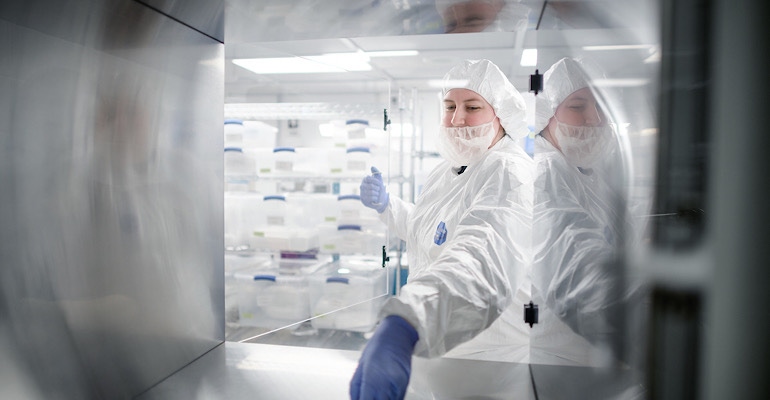Michigan Manufacturers Retool to Lead the U.S. in PPE Production
How Michigan is changing to meet the manufacturing needs during the pandemic.
September 1, 2020

Bobby Chasnis
Throughout U.S. history, life-altering conflicts like the Great Depression, WW2 and 9/11 have challenged the collective notion of how we define ‘normal.’ In 2020, COVID-19 is redefining our definition of normal in ways that have been felt across communities and industries alike.
In particular, the manufacturing industry has seen the global supply chain greatly impacted this year. With the demand for medical PPE skyrocketing and the initial disruption in China, reports have estimated the cost in supplies has increased by more than 1,000%.
In Michigan, demands for medical PPE also reflected the skyrocketing number of cases, as the state – specifically metro Detroit – suddenly became a hotspot of the coronavirus in the U.S. As a result, the state responded with what it knows best – what it can manufacture.
Michigan is home to a deep pool of talent, from having the highest concentration of engineers in the nation to a skilled trades workforce that ranks in the top 10 nationally. Today, the state’s resilient and innovative talent is on display as businesses and workers leverage Michigan’s manufacturing roots to support the medical device technology industry.
Hundreds of Michigan-based companies are helping relieve shortages of PPE throughout the country and unleashing the state’s Arsenal of Innovation to combat the spread of COVID-19. For example, the Big 3 stepped up to manufacture millions of PPE for frontline health care workers and patients. Likewise, a number of small and mid-sized manufacturers within the state that have never manufactured for the health care or medical industry have played critical roles in filling gaps within the supply chain.
Companies that just a few months ago were making tents, engines, and hydraulic filter cartridges have pivoted to making respirators, surgical masks and utilizing 3D printers to make face shields, along with door openers and push buttons to limit interactions in common areas.
These companies that would otherwise be known as competitors are now partners adapting, pivoting and diversifying their existing business models and utilizing state tools and resources to connect with health and human service providers and businesses to provide solutions for frontline health care providers.
In Detroit, Commonwealth Sewing Co. and the Industrial Sewing and Innovation Center (ISAIC) have added medical gowns and surgical masks as permanent fixtures to their high-capacity garment manufacturing operations. Meanwhile, in Northern Michigan and the Upper Peninsula, DreamLab Industries in Traverse City has added respirators to its extensive manufacturing operations, and Beth Millner Jewelry, a fabricator in Marquette, has added foot covers, medical gowns, and surgical caps to its line of nature-inspired jewelry.
The call for companies to support the medical device technology industry has turned into new, long-term revenue opportunities and permanent fixtures within their product portfolios. In fact, the increased support from companies like DreamLab Industries and Beth Millner has directly led to job security and creation within their organizations.
Manufacturing aside, Michigan also began offering an online procurement platform to assist suppliers of critical health and human services in accessing critical supplies and products, including food, medical devices, paper products, cleaning equipment, and more. Since Michigan is now in the phases of re-opening its economy, this platform transitioned to support businesses in need of non-medical PPE, and the demand is higher than ever, with more than 450 businesses with PPE needs accessing the portal in a given day.
There is no doubt this most recent change in ‘normal’ has presented some immense challenges, but the levels of collaboration and innovation have been inspiring.
For Pure Michigan Business Connect (PMBC), being able to quickly pivot to facilitate connections that directly led to an increase in critically-needed PPE, supplies, and safety for our essential workers has been one of the highlights of our program.
As the economy opens back up and we begin to operate within the new normal, I’m confident other industries will look at the endless opportunities of two distinct industries, such as manufacturing and med tech, coming together for the benefit of our world, to apply their new knowledge and resources – from know-how and grit to financial support and state-led procurement efforts – to reimagine and innovate in a post-COVID-19 world. And we have these industries to thank for laying the groundwork for us all.
Bobby Chasnis, is the Director, of the Pure Michigan Business Connect.
You May Also Like


